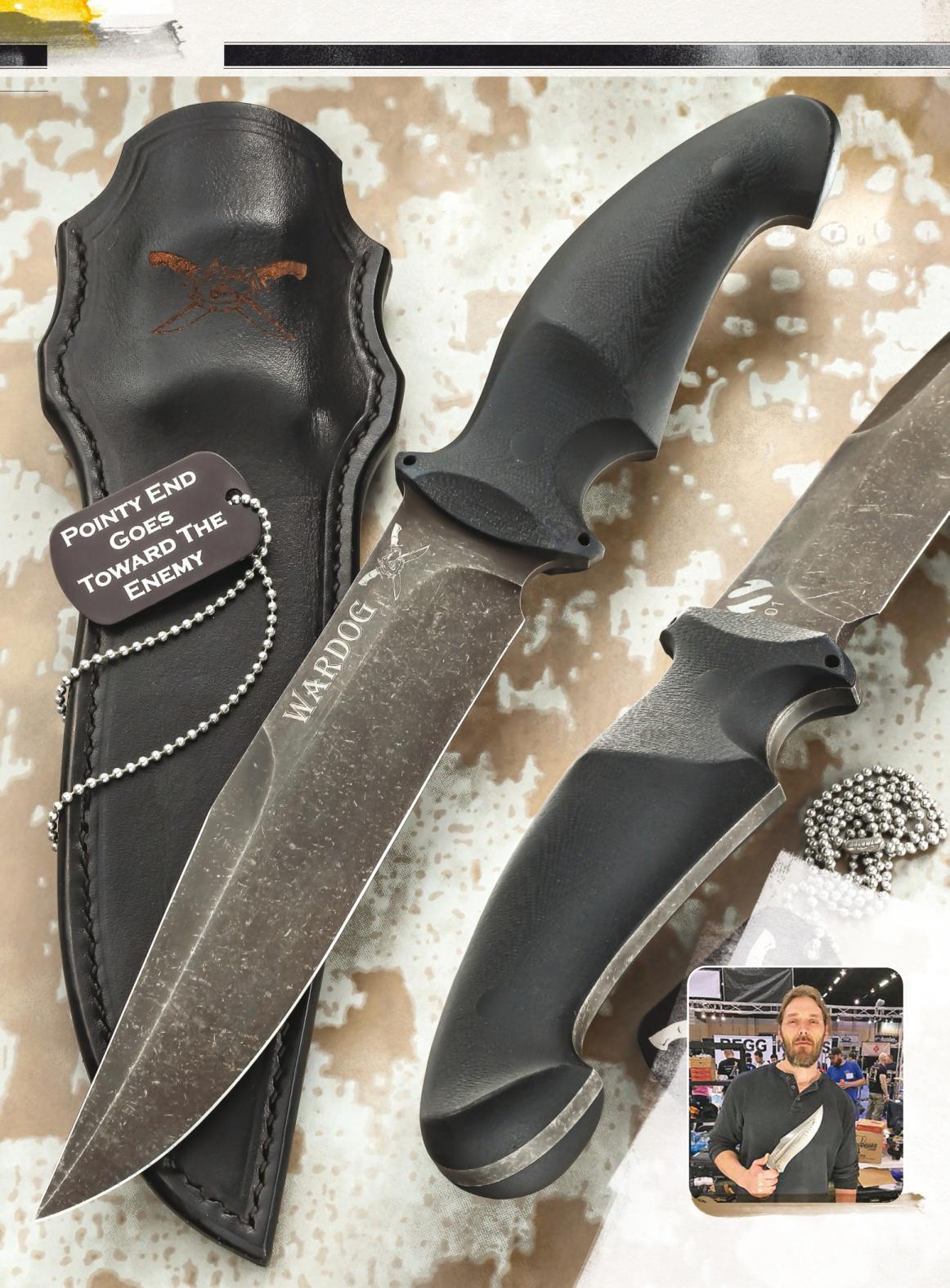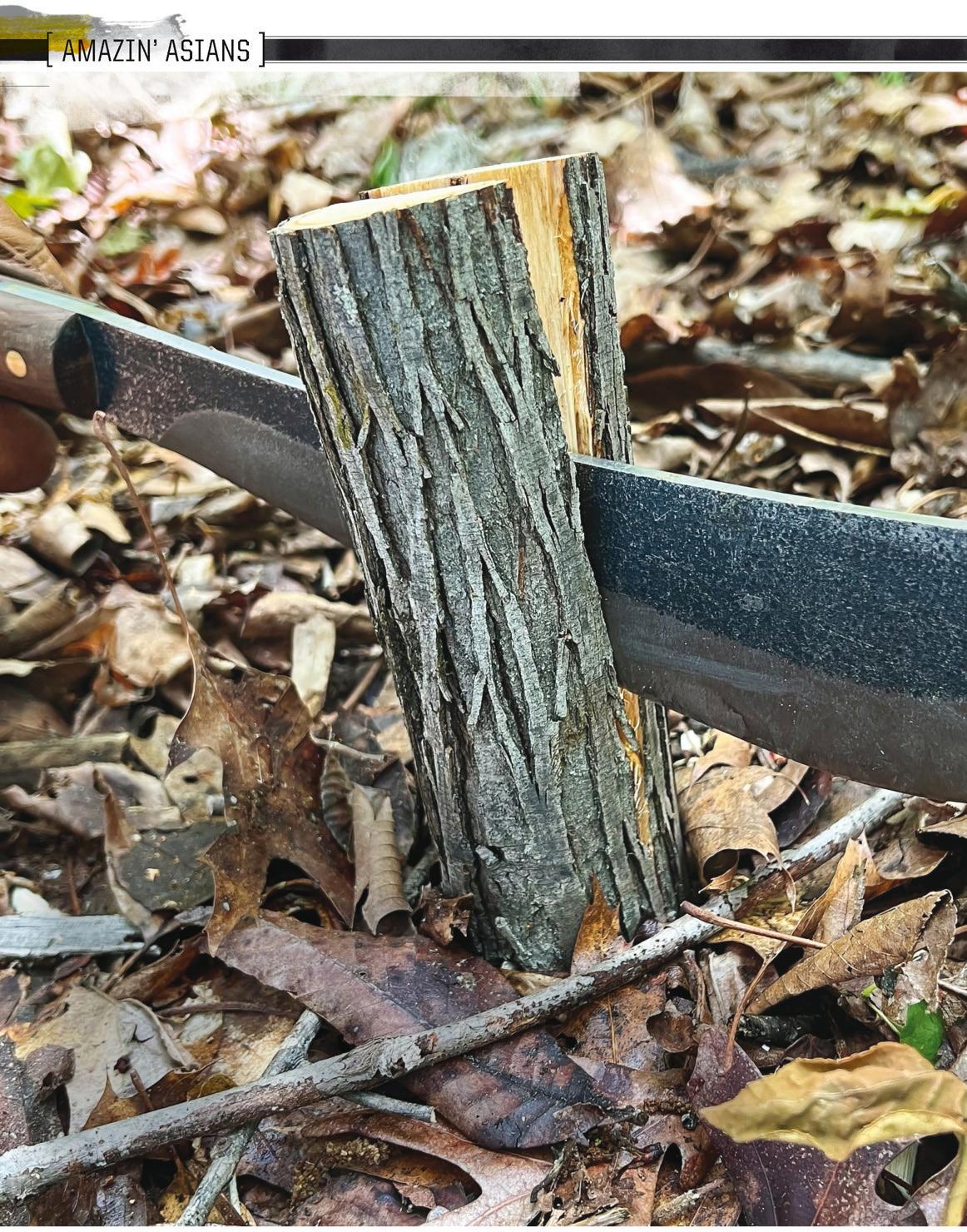[ WAR IN UKRAINE ] DEMONS OF THE PAST
Les Robertson
Perhaps current events will make Nesterenko’s knives even more highly sought after in the future. Meanwhile, he is consumed with the dirty business at hand. “Now in the Kyiv region where I live, Russian troops are defeated and active hostilities have ceased,” Oleksii reported. “But I am still on duty at checkpoints and volunteer. We help the civilian population in the villages near the front. I think that in a few weeks I will have time to partially return to knifemaking.” While he is hopeful and actively involved in the defense of his country, Nesterenko has kept an eye on the conditions of the knife industry in Ukraine and anticipates some adaptations. “Currently, there are no problems with the supply of materials for the production and shipment of knives abroad,” he advised, “so I look forward to returning to work. I am sure that a knifemaker can make a quality knife only if he uses it for its intended purpose. That’s why I used to make only EDC knives. Thanks to the war, I understand what requirements a tactical folding knife must meet. I have already drawn several designs and am waiting for the opportunity to get started.” Changes in demand are not noticeable at this time, according to Oleksii, and orders are in the queue for delivery around the world into 2023. Still, he warned, “I think that the consequences of the war in Ukraine will affect the economies of many countries. And over time, that will affect collectors.”
LITTLE CHANGE In much of the domestic knife industry, little in the way of change has occurred
[ 14 ]
Michael Zieba, an award-winning knifemaker based in Brooklyn, New York, constructs a wide range of custom knives, chef’s knives and accessories, and is involved in a variety of other enterprises. Born in Rzeszow, Poland, 156 miles from the Ukrainian border before later emigrating to the USA, Michael keeps clear of both principals in the war in Ukraine. “The war has nothing to do with my business,” he stated flatly, “and I have never done business with Ukrainians or Russians.” Meanwhile, he has a historical viewpoint of the war completely unlike what you see on network or cable news. “The war summoned demons of the past in the memory of my family,” Michael wrote, a family past that includes his grandfather surviving the Ukrainian Insurgent Army (UPA) executions of World War II. “My whole family was shot by Ukrainians during the extermination of the Polish population from the territory of present-day Ukraine**,” he recalled. “My grandfather was 4 years old then. He managed to escape. After [World War II] the family from Rzeszow found him [in Germany] through the Red Cross. It all left an incredible mark on his psyche. “I only feel sorry for the children and women who are guilty of nothing in this war. My grandmother was 3 years old at the Auschwitz concentration camp. She always said the Germans are demons, the Russians are animals. It’s hard to describe what our family talked about.’” Michael said he thinks the war will end with Ukraine divided into two spheres of influence. The Eastern part is ethnically Russian and the Western part is Ukrainian and half Poles, he observed. Noting that the conflict is basically an ideological one, he opined that the Russians have the wherewithal to fight for up to 20 years. Meanwhile, Poland will become a kind of hub for Western companies, serving as a conduit for much of the aid to Ukraine.
**In 1943, the UPA began massacring and expelling the Polish population. The ethnic cleansing of Poles began on a large scale in Volhynia in late February and lasted until the end of ’44. In January ’44, the UPA campaign of ethnic cleansing spread to the neighboring province of Galicia. All told, the estimated number of Polish civilians killed by UPA in Volhynia and Galicia was about 100,000.
Michael Zieba holds his custom knife award from a past BLADE Show.
due to the war thus far. Custom knife purveyor Les Robertson said that by mid-April FedEx service to Ukraine had been suspended. Therefore, the volume of knives conventionally being sent to Ukraine has probably been curtailed, at least somewhat. Neighboring European Union countries are still moving mail into Ukraine. “No one is sending knives directly to anyone in Ukraine,” Les noted. He went on to comment that factory sales to “armchair warriors” may in fact tick upward as the war persists. Purveyor Neil Ostroff of True North Knives agrees that the current custom
B L A D E -------------------------------------------------------------------------------------------------------------------------------------------------------------------------------------------------------------------------------------------- A U G U S T 2 0 2 2











